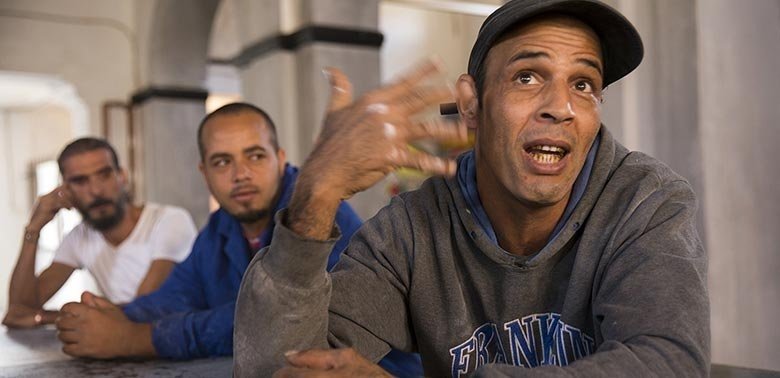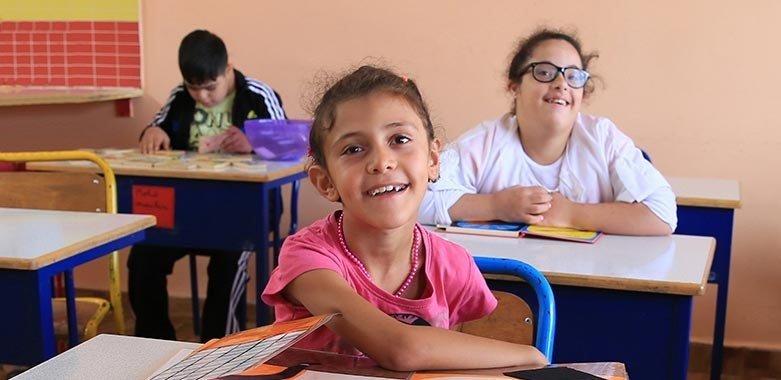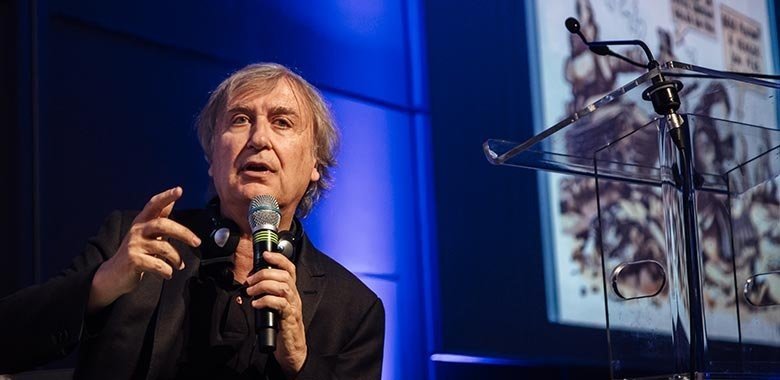Human rights: Fondation de France taking action on all fronts
“All human beings are born free and equal in dignity and rights.” This is the founding principle of the 1948 Universal Declaration of Human Rights. Over 70 years later, human rights are threatened around the world: the rise of populism and religious extremism, conflicts and wars that lead to forced displacement of millions of civilians, discrimination and persecution of minorities (religious, ethnic, sexual, etc.), restrictions on freedom of the press and information, and the list goes on…
Supporting civil society
To preserve human rights, Fondation de France is involved in numerous activities in France, Europe and Africa, as well as North Africa and the Middle East. Their position: to defend human rights it is necessary to preserve democracy and support civil society.
“For a democracy to function, civil society needs to be strong and free and have the means to act,” explains Martin Spitz, International Development expert. “We take action in countries where democracy is in process or emerging, like in Tunisia, as well as European countries where democracy is at risk.”
In North Africa, Fondation de France’s Mediterranean, From Shore to Shore Program is committed to supporting local nonprofits with a top priority: citizen participation, especially among young people. The watchword is to strengthen the capacities of actors on the ground. This approach took on particular meaning during the Arab Spring of 2011. From this point on, young people became actors of their own projects, “projects designed by them, and not only for them.” Like SIWA, in Redeyef in southern Tunisia. In 2014 they transformed the old Companie des Phosphates de Gafsa facilities into a cultural center made for and by young people.
FIKRA
In order to support the ongoing movement for a transition towards democracy in Tunisia, in 2021 Fondation de France united with three other European foundations to create a collective fund called Fikra, which means “idea” in Arabic. The fund’s intention is to experiment with an original concept: organizing calls for ideas instead of projects. Because in some regions, the absence of nonprofits doesn’t mean that people there don’t have ideas, projects and aspirations. It is these emerging approaches that Fondation de France hopes to identify and “incubate.”
 Thanks to the SIWA project, young people in Redeyef in southern Tunisia have created a cultural center and become planners of their own projects.
Thanks to the SIWA project, young people in Redeyef in southern Tunisia have created a cultural center and become planners of their own projects.
Helping migrants
Globally, over 70 million people are subject to forced displacement. Often these exiles have witnessed violence, either in their country, on the road to migration, or in their new home countries. Crossing the Mediterranean is the world’s most dangerous migration route: since 2014 over 18,000 people have died, a third of whom were children and teenagers. In France and around the world, nonprofits and citizens are mobilizing to make sure migrants are met with dignity and humanity when they arrive in a new country. Fondation de France supports this commitment with its Migrant Solidarity Program.
Launched in 2015, this program comes to the aid of populations in exile, no matter what their origins, their religion, or their legal status. Since it was launched, over a hundred projects have been supported in France, Lebanon and Jordan.
On the international front, Fondation de France concentrates on education, training, job placement and psychosocial support, especially for young people.
In France, the aim is to support community engagement for exiles and to offer those most at risk access to psychological help. From the beginning, access to justice has been at the heart of the program, via nonprofits like Gisti, La Cimade and Dom’asile.
Many donor-advised funds work to help migrants. This includes the Un Monde Par Tous Foundation (One World for All Foundation) which aims to protect and promote migrant rights, Fondation Cabestan and Fondation Humanités, Digitales et Numérique, among others.
Fighting against inequality and discrimination
This is the approach that Fondation de France’s AIDS Program has chosen to structure part of its activities. Advancing gender equality is a key lever for promoting prevention, access to treatment and the inclusion of HIV-positive people in society. The program is up and running in Guyana, Mayotte, the West Indies and French-speaking sub-Saharan Africa. Since 2006, over 250 projects have been financed for a total of 7 million euros.
Donor-advised funds are also mobilizing against the death penalty, modern slavery and violence against women and minors, such as the Fondation Yo et Anne-Marie Hamoud. Fondation Rainbow Solidarité, which focuses on LGBT rights, works with local nonprofits in countries where the homosexual community is threatened and discriminated against. In Morocco, Fondation Béatrice Schönberg works to promote education for young girls in areas where few women have access to schools.
 “For girls, education is a means of emancipation and development. So for me, the obvious choice was to take an interest in these young girls.” Béatrice Schönberg, Fondation Béatrice Schönberg Pour l’Éducation des Filles
“For girls, education is a means of emancipation and development. So for me, the obvious choice was to take an interest in these young girls.” Béatrice Schönberg, Fondation Béatrice Schönberg Pour l’Éducation des Filles
Defending freedom of expression and information
Another priority: defending freedom of expression and preventing the spread of disinformation. Fondation de France aids projects that support media, culture and the protection of the public sphere. “Right now, the combat against disinformation is one of the world’s most important issues. At Fondation de France, we are very aware of the question of reliable information and media education. We help international organizations like Cartooning for Peace and Reporters Without Borders, as well as nonprofits like IREX, which set up partnerships on the ground, like the resource centers for media education that they are creating right now in Tunisia,” notes Martin Spitz.
Since it was created in 2017, it has partnered with Fonds Civitates, a European consortium of foundations that is dedicated to defending freedom of expression and information.
 Plantu, cartoonist at the newspapers Le Monde and L’Express, is the president of Cartooning for Peace.
Plantu, cartoonist at the newspapers Le Monde and L’Express, is the president of Cartooning for Peace.
TO FIND OUT MORE

